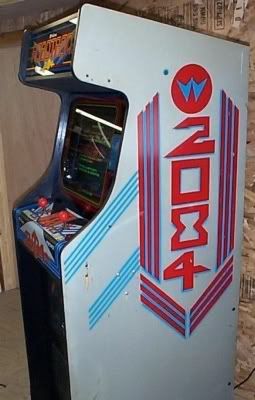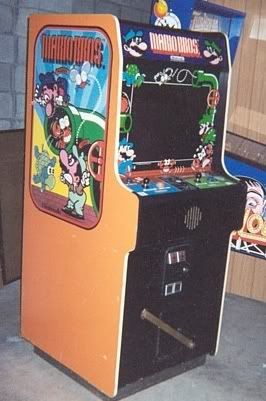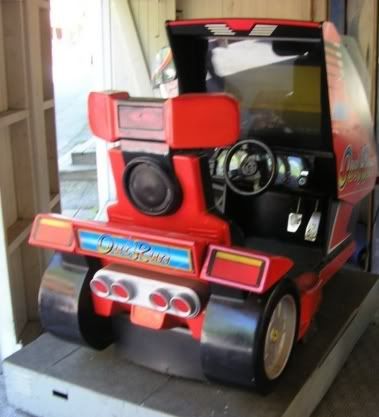I believe that hip-hop music is my generation's music. Rock is for my parents, jazz is for my grandparents, but hip-hop is mine. Listening to it as a kid, I found great satisfaction in my father's complaints about that "military marching music," because I knew he was validating my feelings for it. You don't like it, dad? Good, it's not for you. It's for me.
Listening to rap wasn't unusual for my peer group growing up. I grew up in a predominantly white, middle-class neighborhood, so it wasn't exactly a b-boy heaven, but most of the people I knew in my age group listened to at least some rap. When It Takes a Nation of Millions to Hold Us Back by Public Enemy came out, there was a huge crossover of heavy metal-heads into rap fandom, especially in my neighborhood in Queens--the very one that birthed the metal band Anthrax, who would go on to record a song with P.E. I read stories of kids who had to hide their rap tapes from parents, and who caught all kinds of flak at school for wearing an EPMD t-shirt--I had none of that. Rap was pretty well-accepted in my neighborhood, and my friends and I prided ourselves on keeping up with the latest rap releases, sometimes to our chagrin (oh Arrested Development, I had such high hopes for you).
Rap music is a pretty cutting-edge form of music, when you think about it. It's made from already recorded tunes, using increasingly complicated recording equipment, and the lyrics are usually stripped of their melody, offering a bare bones kind of aesthetic that disregards conventional ideas about songs. Songs, they say, should be sung. It's not hard to understand why parents might be less than enthused by the monotone yelling over thumping beats coming from their children's stereos. Even Jimi Hendrix never rocked like that.
Fast-forward to the present day: I haven't kept up on all the latest rap releases (sorry, South Coast, I guess I'm still sleeping), but I consider myself a big fan and it's still my primary musical love. I have a friend that's three years younger than I who is also a rap fan since his teen years, though he came up in a different era of rap than I did. Where I was raised on Public Enemy and De La Soul, he was raised on Nas and Biggie Smalls. He believes Ma$e's Harlem World is a classic, not corny like I do. He actually likes PMD's solo album. We see eye-to-eye on a lot of things (it's not like I don't like Nas or B.I.G.), but at the core our tastes are very different.
Like a good hip-hop nerd, I try to put him on to some of my favorite music from my youth. So we came to the day I put The Goats' Tricks of the Shade on the stereo. When that album came out, I played the shit out of it: front to back, over and over and over. I wore out my tape and had to re-buy it on CD. Then I actually wore out the CD. It was a favorite among my high school friends and I, we knew every lyric and every horn stab, and I was sure my younger friend would be blown away. I put the album on the stereo and sat back smugly to gauge his reaction.
My friend listened, passively.
Then he frowned.
Then he started talking over the music!
I was offended and, even moreso, stunned. This was my shit! How could he disregard it like that? So I skipped around to some of the best songs on the album, begging him to listen. He shrugged and said it was okay.
Okay?
Just okay?!
I told him how much I listened to this album as a teenager, smoking pot and playing Super Nintendo and just digging the hell out of it. I told him how I first saw the video for "Typical American" on that call-in cable video channel, The Box, and I was so impressed that I ran out to cop the album. Everyone I knew loved this album, I explained. It's a classic.
"I dunno," my friend muttered, "it sounds like frat rap to me."
And that was that. One of my most cherished albums from high school, reduced to "frat rap." As I listened to it play on my stereo while my friend distracted himself with other things, I came to a painful realization: he was right. The Goats is part of the foundation that The Bloodhound Gang was built on. There's not much distinguishing their choruses from anthemic bar chants by House of Pain. And at that moment, I realized that I may be a rap fan, but I am not cutting-edge. I am a boom-bap dinosaur. I prefer Jeep beats in an era when everyone is driving Escalades. Soulful jazz loops move me more than staccato synthesizer rhythms ever could. And you know what, I've come to terms with it. I'm okay with being a boom-bap dinosaur. I still think The Goats are fucking great.



